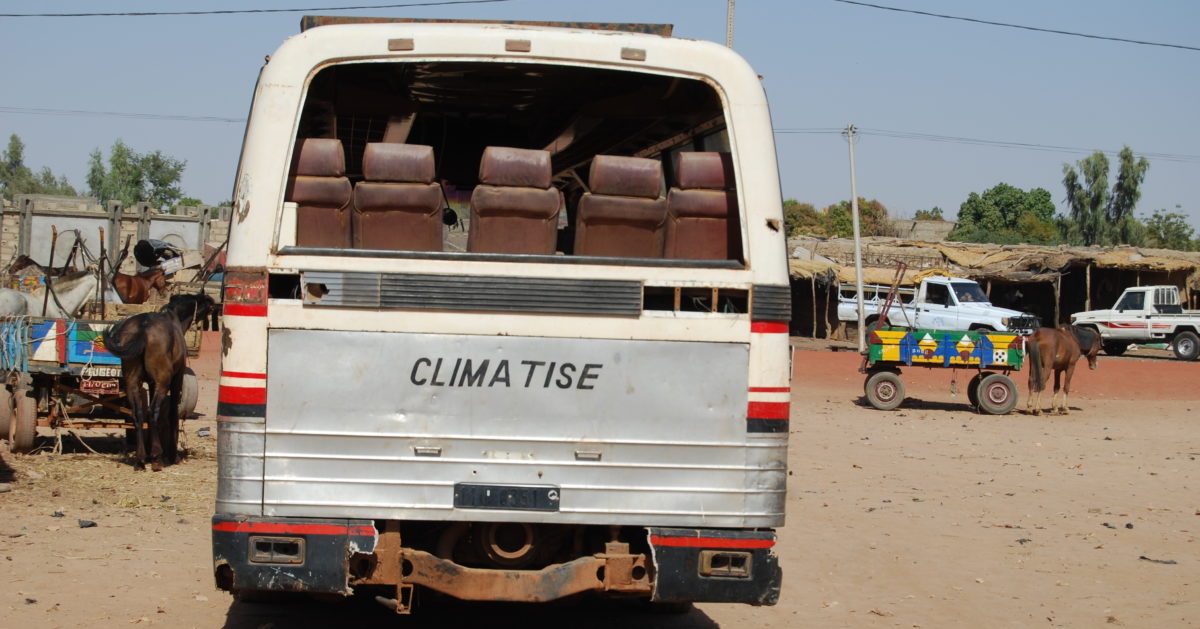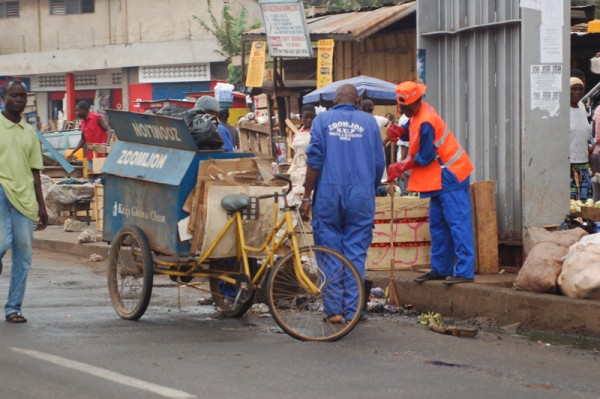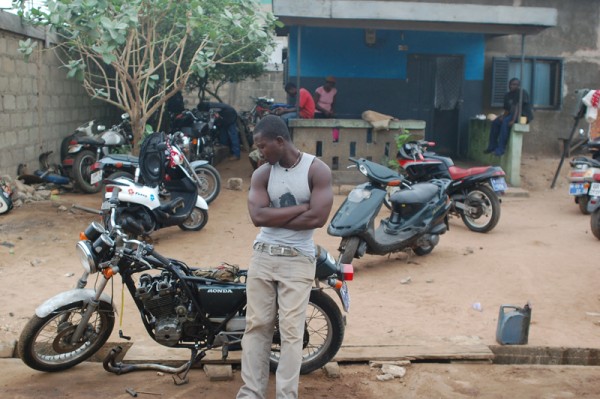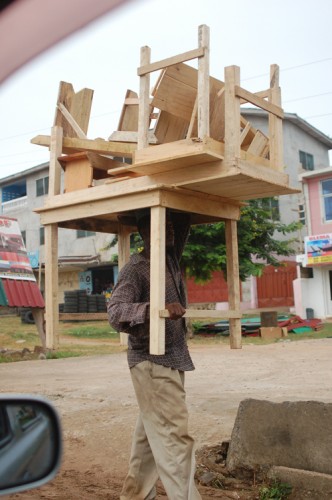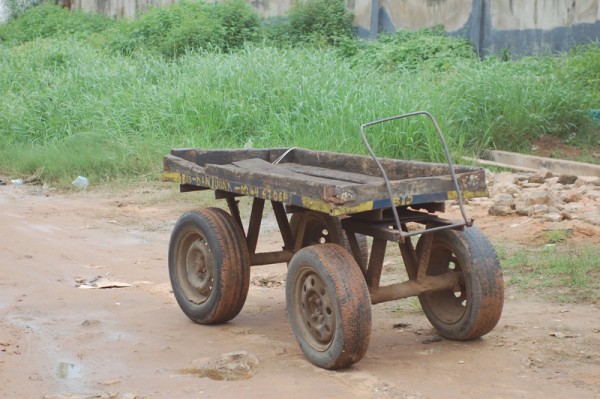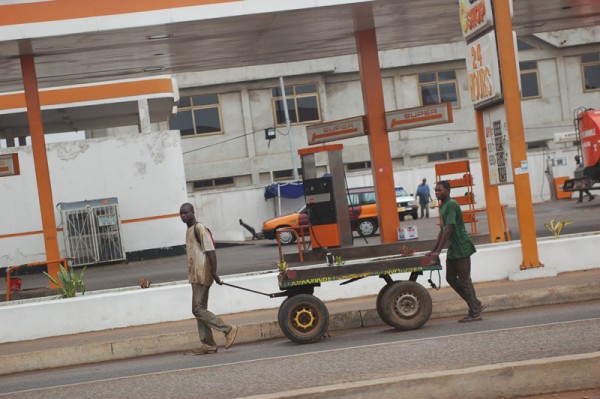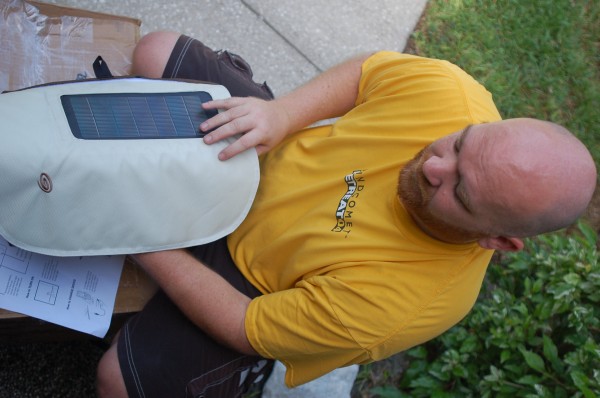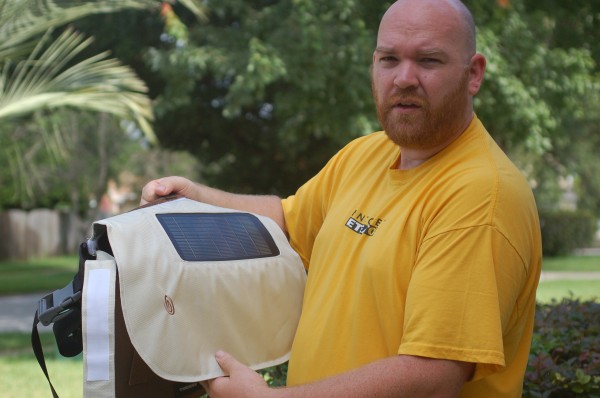This is part of an ongoing series of posts on the FLAP bag project, a collaborative effort by Timbuk2, Portable Light and Pop!Tech. We at AfriGadget are helping to field-test these bags that have solar power and lighting on them, and get interviews of the individuals using them.
I’d like to upload some of the video from today’s first big day in Ghana, but bandwidth considerations make that a little difficult right now. Instead, I’ll give an overview and show some pictures.
Mechanics
Henry Addo is a colleague of mine at Ushahidi, and he’s also the Ghanaian representative who is helping me hand out the bags, do interviews and have fun… He’s also a motorcycle rider, so I made sure to pack my helmet before leaving. We set off in search of likely prospects for both the FLAP bag project and Maker Faire Africa.
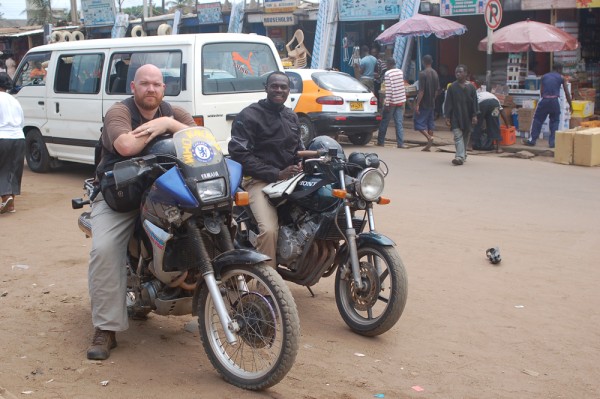
I started out on a 250cc Honda streetbike that made me feel a little like Bowzer in Mario Kart. Fortunately, our first stop of the day was at Henry’s local motorcycle street mechanic at which I saw a beautiful 600cc Yamaha Terere being fixed up. The owner happened to be there, and he was game for a 2-day swap (with about $10/day thrown in for good measure…)!
This was also the first place that we started showing off one of the assembled bags to gauge the kind of reaction that we would receive from people. We didn’t do any formal interviews here, but had a good time of questions and people came up with some interesting thoughts on the use of the bag.
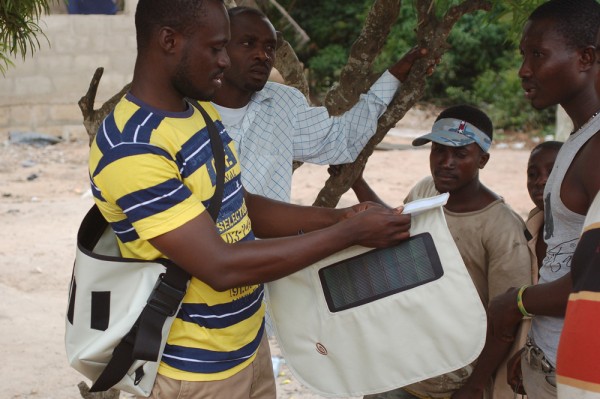
The head mechanic absolutely loved it, recounting the many times he was traveling around Ghana and needed light at night to fix his motorcycles.
The real estate businessman wanted to know the cost, thinking he would buy one right now for $100 from us (for bragging rights). Though he thought there was a market for them in Accra, that the real buyers would be found in rural villages.
The used-goods businessman wondered what would happen to the solar system if you tried to wash it to clean the bag. I didn’t have an answer, but I said that I thought it would be durable.
Tailors
We ran all over town trying to find tailors of adequate skill to assemble the bags that had come in pieces. It turned out being a little bit of a challenge, but things took a great turn for the better and we found 2-for-1 going on in a market. Elijah and Mohammed both traditionally use West African cloth to make both jackets and bags, however, they were game for this challenge (especially as it scored them a free bag).
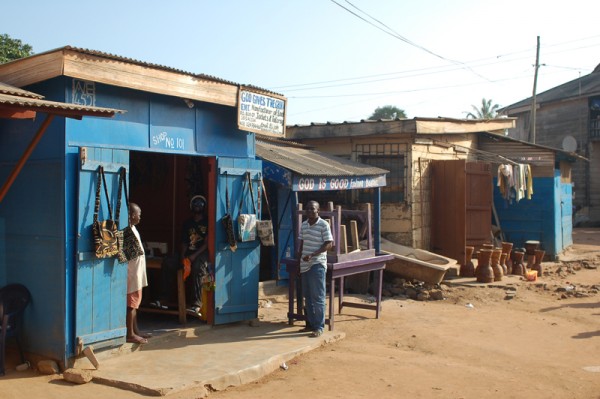
Both tailors spent a great deal of time examining the textiles used and they made comments about the quality level of the bag. Interestingly, they didn’t think they would use the bags that much themselves, but they did think that their wives would find them useful.
I did full interviews with both of them, and will upload those in the near future. Henry will be going back to them in 2-3 weeks to see what has happened with the bags and how they are being used.
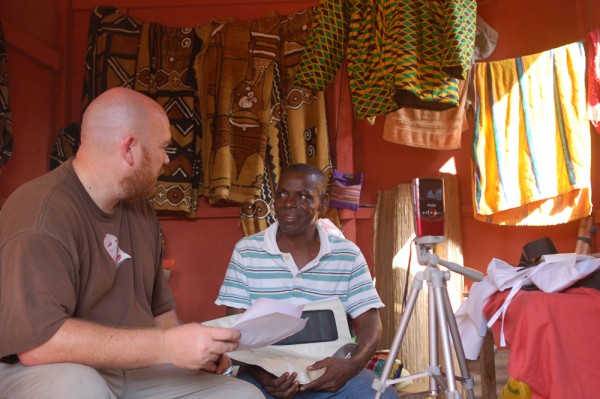
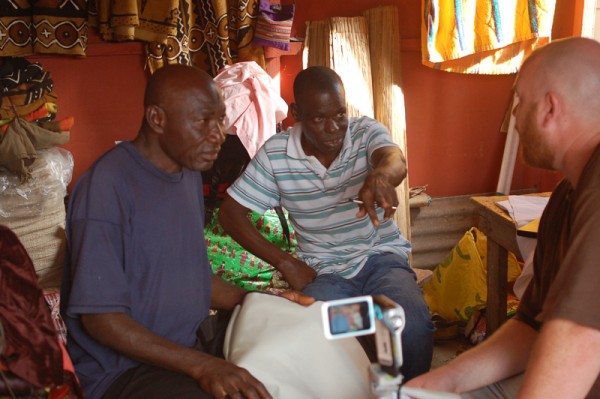
Knowing that we wouldn’t find too many others that could make the bags from the pieces we had, we also wanted to challenge them to something even more interesting. We asked what they would do if we gave them a basic portable light kit (2 solar panels instead of 1) and tried to make a bag with it, using traditional cloth elements and no set design pattern. Both decided to give that a try as well, with the caveat that some material would be hard to find, and we’ll report back on the outcome.

